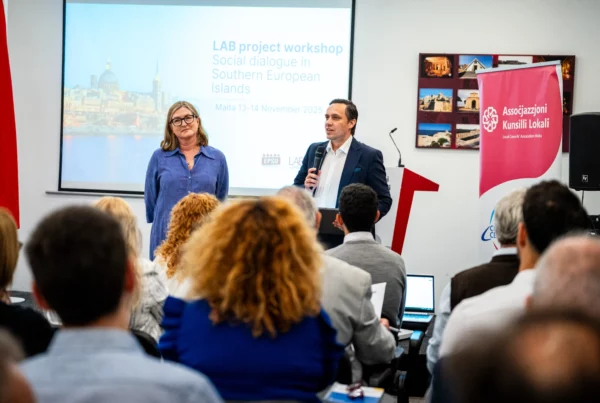Training on gender equality at the local level: from commitment to actions
On 18 November, CEMR organised the online workshop “From commitment to action: Training on gender equality action planning”. The event brought together around 60 participants from more than 10 countries, including France, Germany, Belgium, the Netherlands, North Macedonia, Romania, Ukraine, Greece, Poland, the United Kingdom and Austria. Municipal representatives, national coordinators and experts joined to strengthen their capacity to design, update and implement Gender Equality Action Plans (GEAP) in line with the European Charter for Equality of Women and Men in Local Life.
As the Charter approaches its 20th anniversary in 2026, the session provided practical guidance, tools and inspiration to support renewed commitment at local and regional levels.
Gender equality action planning: tools and approaches
The workshop started with inputs on the importance of gender mainstreaming as a core tool for local gender equality strategies. Miguel Hernandez Littlewood from DG REGIO presented the EU’s strategic framework, relevant funding mechanisms and the new gender-tracking methodology.
Aline Burni research fellow at the think tank ODI Europe shared findings from the GAP III report and offered practical guidance on conducting needs assessments, securing financial resources, ensuring leadership commitment and developing monitoring systems focused on impact rather than activities.
The experience of the Charter’s signatories
Several Charter signatories shared their experiences and challenges in developing their Action Plans.
Nataliya Lazarenko, on behalf of the Association of Ukrainian Cities, and Alina Khaletska, member of the Expert Council on Gender Integration of the City of Kyiv (Ukraine), presented their unique experience with the Charter, recalling that the first Ukrainian signatory was Vinnytsia (Ukraine) in 2017 and explaining how the context of war has intensified gender equality concerns.
Pascale Douineau, elected official responsible for gender equality from the City of Quimperlé (France), shared its work on the visibility of women in public spaces, while also highlighting the specific challenges faced in rural areas.
They emphasised the importance of strong political commitment, noting that signing the Charter is a concrete signal to take action, and that Action Plans are essential tools for implementing equality measures in daily life.
The workshop offered participants the chance to work through a practical exercise to design an action plan based on the Charter’s articles, including Article 22 on gender-based violence, which encouraged the exchange of good practices. Participants also discussed the need for an integrated approach, the challenges of securing adequate financial resources, and the importance of setting dedicated budget targets. Finally, the relevance of effective monitoring tools emerged as a key point of reflection.
The main takeaways from the workshop highlight that an assessment of gender needs is indispensable for identifying priorities and ensuring that measures are not generic but reflect local realities. Sustainable implementation requires adequate financial resources, committed leadership, and long-term structures. Ultimately, the discussions made clear that a single model for gender equality action planning does not exist. Each approach must be tailored to local contexts, and Gender Equality Action Plans are essential tools to translate these commitments into concrete, measurable actions.
Preparing for the Charter’s 20th anniversary
As next year 2026 we move toward the 20th anniversary of the Charter, CEMR will keep working alongside towns, cities and regions to advance their gender equality strategies. Participants are encouraged to take forward the tools and insights gathered during the workshop, embed them in their local plans, and remain active partners in the collective push for gender equality.

Trainee – Policy team






